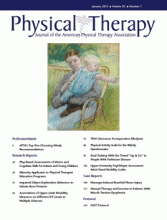Abstract
Background Object exploration behaviors form the foundation for future global development, but little is known about how these behaviors are exhibited by infants born preterm.
Objective The study objective was to longitudinally compare a comprehensive set of object exploration behaviors in infants born preterm and infants born full-term from infancy into toddlerhood.
Design Twenty-two infants born full-term and 28 infants born preterm were monitored as they interacted with objects throughout their first 2 years.
Methods Infants were provided up to 30 seconds to interact with each of 7 objects across 9 visits. Experimenters coded videos of infants' behaviors. Growth modeling and t tests were used to compare how much infants exhibited behaviors and how well they matched their behaviors to the properties of objects.
Results Infants born preterm explored objects less in the first 6 months, exhibited less visual-haptic multimodal exploration, displayed reduced variability of exploratory behavior in a manner that reflected severity of risk, and were less able to match their behaviors to the properties of objects in a manner that reflected severity of risk. Infants born preterm with significant brain injury also had impaired bimanual abilities.
Limitations There was a limited sample of infants born preterm with significant brain injury.
Conclusions Infants born preterm have impaired abilities to interact with objects even in the first months of life. This impairment likely limits the knowledge they acquire about objects and about how they can act on them; this limited knowledge may, in turn, impair their early learning abilities. These results highlight the need for assessment and intervention tools specific for object exploration in young infants.
Footnotes
Dr Lobo and Dr Galloway provided concept/idea/research design and project management. All authors provided writing. Dr Lobo provided data collection. Dr Lobo, Ms Kokkoni, and Dr Cunha provided data analysis. Dr Galloway provided fund procurement and facilities/equipment. The authors acknowledge Jean-Philippe Laurenceau for mentoring on statistics and consultation on the data set.
This study was approved by the University of Delaware Institutional Review Board.
This research was funded by the Eunice Kennedy Shriver National Institute of Child Health and Human Development, National Institutes of Health (grant 1R01HD051748).
- Received November 27, 2013.
- Accepted August 24, 2014.












